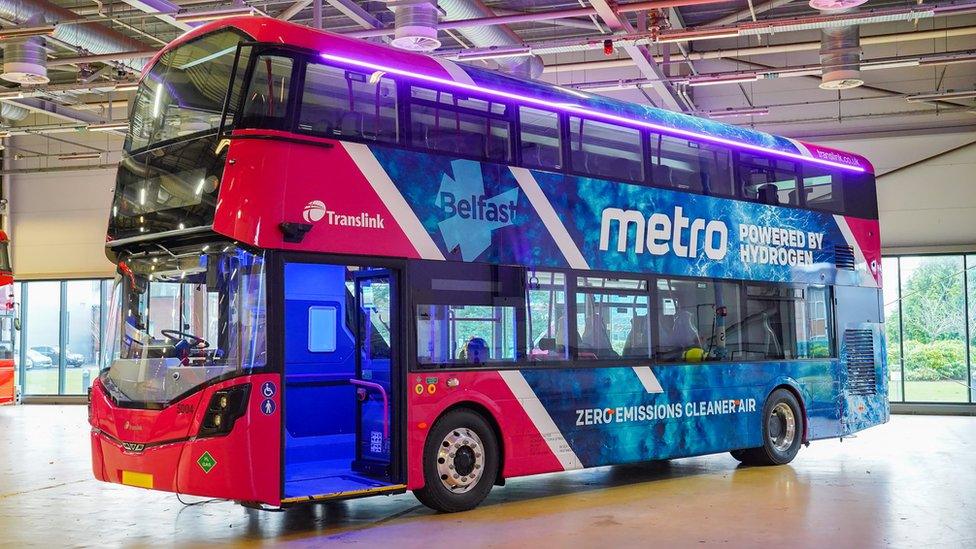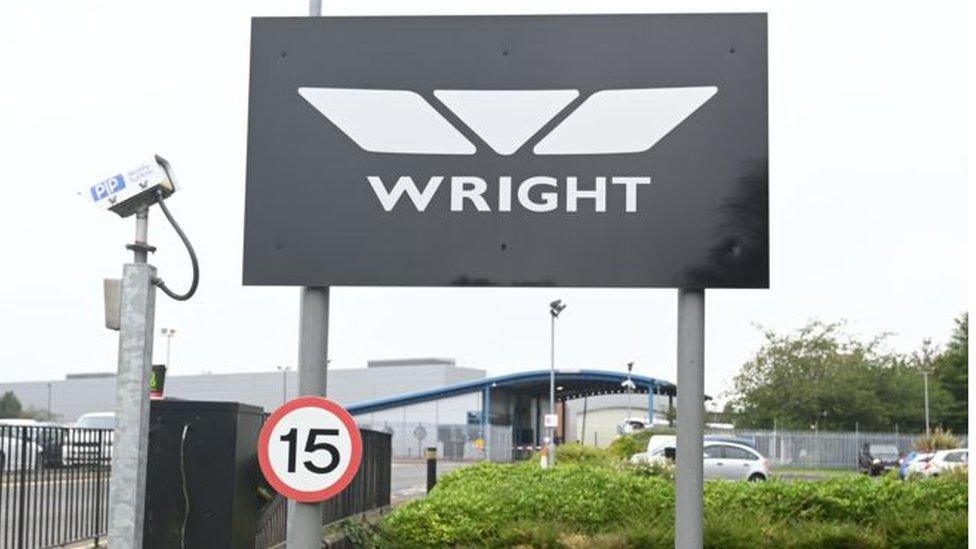NI green hydrogen projects win government grants
- Published

Details of the Wrightbus project were first announced earlier this year
Two green hydrogen projects in Northern Ireland have won government grants in the first round of the UK Net Zero Hydrogen Fund.
Green hydrogen is made by using renewable electricity to separate water into oxygen and hydrogen - a process called electrolysis.
The grants will be used to help fund the construction of electrolysers.
One will be at the Mannok cement plant in Fermanagh, the other at Wrightbus in Ballymena.
Details of the Wrightbus project were first announced earlier this year.
Hydrogen does not produce carbon emissions when it is burned, so is considered a likely replacement for fossil fuels in heavy vehicles and industries such as steel and cement making.
However, most hydrogen currently sold in the UK is produced by splitting it from natural gas, a process which emits carbon dioxide.
The government is trying to encourage more green hydrogen production as part of its strategy to radically reduce greenhouse gas emissions by 2050.
In all, 15 projects across the UK will be awarded grant funding of £37.9m to support the development and deployment of new low-carbon hydrogen production plants.
The amount of funding going to each project has not been disclosed.
"We are delighted to have won funding for this hugely important project, alongside many other schemes which will support the hydrogen economy going forward," Rob Best, director of egineering at Wrightbus, said.
North Antrim MP Ian Paisley said: "It is testimony to the forward thinking of the company to make Ballymena the hub for hydrogen here and secures Northern Ireland's role in green tech, engineering and energy production. It is imperative that the company and country builds on this significant foundation".
Energy Security and Net Zero Minister Graham Stuart added: "Today's announcement will create opportunities for Northern Irish businesses to export their expertise around the world and set the standard for a clean, secure and prosperous future".
There has been some controversy about the best ways to use hydrogen, particularly whether it should have a role in home heating.
Last year the House of Commons Science and Technology Committee suggested it is likely to be best suited to applications or places which are:
Hard to electrify - such as some parts of the rail network
Uses that do not require the creation of an extensive refuelling network - such as local bus services operating out of a fixed number of depots
Users who are adjacent to, or accessible to, places where hydrogen is produced, such as industrial clusters.
It added that: "Essential questions remain to be answered as to how in future large quantities of hydrogen can be produced, distributed and used in ways that are compatible with net zero and cost efficiency".
- Published13 February 2023

- Published22 March 2021
